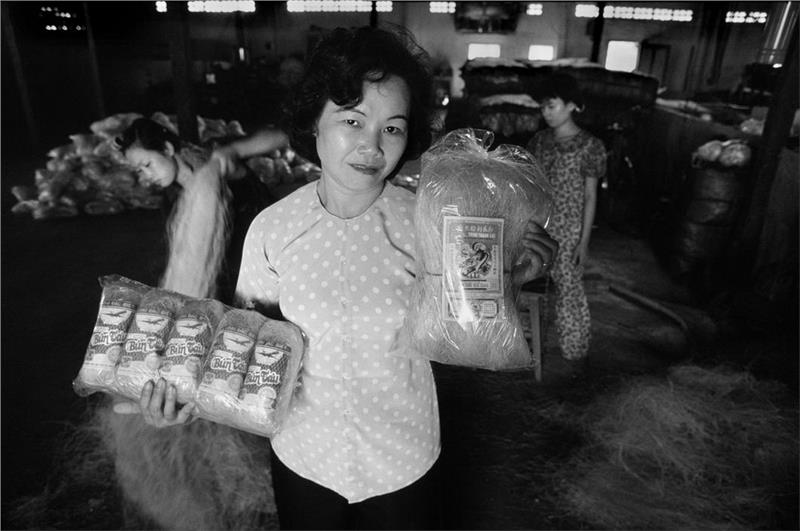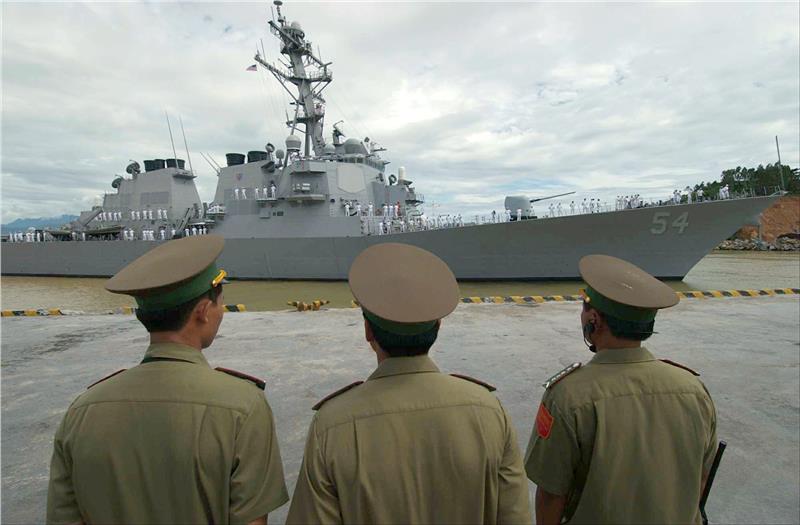In 1975, American- Vietnam War ended victoriously. This is the most glorious and illustrious victory of Vietnam history and Vietnamese people. The American Empire, the most powerful economic and military empire in the world was finally defeated by Vietnamese people. A flourishing era of Vietnam's revolution opened an era of independent and united nation. However, the formation of socialism is a difficult task in the conditions of a country which has gone through years of constant wars.
In the period of post – reunification, Vietnam economy is characterized by Five-year Plans, especially the period of “State subsidy”. This period in Vietnam is a stage in which almost economic activities took place under the planned economy, a characteristic of the communist economy. Commodities were distributed according to state’s stamp mode, and not freely traded in the market, or delivered in the country. Cash exchange was limited. Wages were sometimes payment in kind. Although the subsidy period had existed in the North before 1975, it was often referred to the economic activities of Vietnam in the period from early 1976 to late 1986.

In 1986, in the sixth National Congress of the Communist Party of Vietnam, “Doi moi” policy (Vietnam Economic Reform) was conducted with the goal of creating a socialist-oriented market economy, and economic reform was implemented first. Then, in early 21st century, reforms in social, political, and cultural aspects were conducted.
The contemporary historical economic development in the world and in Vietnam proved that socialism in combination with market factors would be the Third Way which is different from capitalist economy and planned economy. European countries and the former Soviet Union left planned economy for market economy. Such developed capitalist countries as the United States, Britain, Germany, France and Japan in the 20th century also adjusted their economic models towards enhancing the intervention of the state apparatus (mixed economy). The social market is the main guideline of economic development in developed countries in the Northern Europe such as Sweden, Finland, and Denmark. Therefore, the economic reform gradually established in Vietnam. The economic reform was defined by the State of Vietnam as a process of economic transition from a centrally planned economy to commodity economic with many components, operating under the market mechanism, the management of the State, and socialist orientation. The views of Doi Moi in Vietnam rely mainly on the experience on reforms in Eastern Europe, and China.
In term of politics, relations between Vietnam and other countries have been improved significantly. In recent years, the Vietnam U.S relation has been improved. In early 1994, the U.S cancelled the economic embargo which was given from the 1960s in Vietnam. The normalization of diplomatic relation with the United States was restored in 1995. Vietnam Embassy in the U.S is located in Washington D.C, while, one Consulate General of Vietnam was built in San Francisco (California), and another in Houston (Texas). Meanwhile, there is a Consulate General of the United States in Ho Chi Minh City and the U.S has a plan to open another Consulate General in Da Nang.
Bill Clinton, who did not join Vietnam War and other wars in the world, became the first president of the U.S visiting Vietnam in 2000. The diplomatic relation between Vietnam and the United State was improved and diversified. These two countries often expand to exchange in politics and regional security. In July 2000, Vietnam and the United State singed a Bilateral Trade Agreement, coming into effect since December 2001. Then, it was the visit of George W. Bush to Vietnam in 2006 when Vietnam joined World Trade organization (WTO). In November 2007, the United State accepted the Permanent Normal Trade Relations in Vietnam.

Besides, Vietnam China relation was improved. A conference held in September 1990 marked a great change in Vietnam – China relation. Yet, Vietnam seems to be overwhelmed by this powerful neighbor, while China secretly seems to regard Vietnam as its renegade province. Since the economy of Vietnam blooms, China is attracted by the advantages of Northern Vietnam which is the shortest way from Yunnan and Sichuan to the southern sea of China. Vietnam believes that cooperation is better than digging too much into the past; thus, Vietnam – China relation in early 21st century is developing thoroughly in almost sectors, especially economy and politics. Vietnamese press, recently, honors the friendship between the two countries, despite of the conflict in the East Sea.
Economically speaking, the economic reform is developed completely, from an import country and receiving foreign aids to become an export country. Since 1989, Vietnam began exporting mainly rice, and became the second largest country in exporting rice with about 4.9 million of tons per year. During 1991-1995, the annual growth rate of Gross Domestic Product was 8.2%. In 1996, the figure of Foreign Direct Investment reached over US $30.5 billion. In 2004, Vietnam mounted the growth rate of 7.7%, ranking second after Singapore in the region. The sustainable development in Vietnam was reflected through export (increasing 30%), as well as the increase on the industrial manufacture and construction (10.2%). In 2005, the growth rate of Vietnam economy was 8.5%.
Vietnam has established diplomatic relations with 178 nations, with 224 countries and territories in economy, commerce and investment. Vietnam is also member of United Nations, ASEAN, ASEM, APEC, WTO, etc. Vietnam becomes one of the fastest developing countries in the world. According to BBC, in 2004, Vietnam ranked 11th in the most developing economies in the world, yet, in 2013, the growth rate reduced to 5.42%, ranking sixth in 11 Southeast Asian countries. Becoming an active member of ASEAN is a great milestone in the development of the country, which also contributes in forming an optimistic economy in Vietnam. Vietnam economy is developing with over 8% annually, appealing tourists’ attention. Vietnam today is a dynamic country. Even though the country is somehow affected by its neighbor in the north, but the country still has its own way to integrate and develop.
